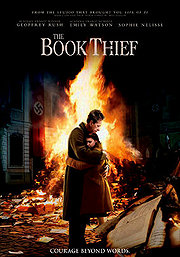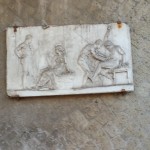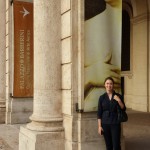The movie maestros have decided, in their wisdom, that good dramas which might have a chance at awards shall be showed at the end of the summer or in the Fall, preferably near the peak season between Halloween and the end of the year, presumably because those who decide the Oscars and other awards have short attention spans.
These movies tend to be based on best-selling books of one sort or another (see e.g. the Book Thief– a terrific novel reviewed on this blog a good while back), but of course it is impossible to film a whole book of any considerable length. The screenplay is always an edited down version. Having said that, at 2 hours six minutes for ‘The Butler’ and ‘The Book Thief’ at 2 hours and five minutes, prove by some modern standards to be long movies. Of the two, The Butler seemed to drag more than The Book Thief, but both were well worth seeing.
It is one of the characteristics of dramas that have demanding roles and considerable dialogue (in other words, movies in which actual acting is required unlike some action or fantasy flicks) that they tend to have one or more well known and seasoned actors. In the case of the Book Thief this meant casting Geoffrey Rush (of The King’s Speech fame) as Hans, and Emily Watson (as Rosa, the wife of Hans). It does not hurt to have a child actor or actress that is winsome and can also act. This gives the movie a chance to appeal to a wider age range of audience. The Book Thief has Sophie Nelisse, and she is terrific.
I hardly need to do more than mention the name of the actors in The Butler, many of whom have already won acting awards of one sort or another— Forest Whitaker, Oprah Winfrey (see The Color Purple from a long time ago), Robin Williams, Cuba Gooding Jr., Terrence Howard, Jane Fonda… and I could go on. But the star power of the latter movie doesn’t prevent it from being too much of a history lesson, and too little of a winsome story, based loosely on a true story about an African American usher in the White House who serve through seven presidencies.
I actually met the man on whom this story is partially based (his name is not Cecil Gaines) the last time I had the privilege of having a private tour of the White House, over a decade ago. I asked him what was his most difficult moment during his many years of service. Without hesitation he said, ‘the day Nixon had to leave the White House and fly off in a helicopter.’ The saddest day was without question the day Kennedy was assassinated.
In some ways ‘The Butler’ is an eye-opening chronicle of how divided the African American community was about some aspects of the Civil Rights movement, especially the Malcom X end of the movement which tended toward violence, unlike the MLK end of the movement. Forest Whitaker is terrific in this movie and deserves serious Oscar consideration, as he has before, but even he cannot rescue this movie entirely from being a bit too heavy-handed of a moralizing tale on a subject we have already been thoroughly schooled on by movies like The Help or TV classics like Roots– namely racism in the old South. This movie was less true to the real story of the White House usher, than The Book Thief is to its presentation of the novel of the same name.
While there is always a danger of a movie about the evils of Nazi-ism (and a different sort of racism) having a deja vu effect, as an all too familiar lesson, The Book Thief movie avoids this trap, and presents us with a powerful family tale, coupled with some of the same familiar scenarios as the classic The Hiding Place, about Protestants harboring Jews during WWII.
But there is another whole element which makes this story unique— namely that ‘Death’ personified is the narrator of the tale about the value of life! There is thus an irony undergirding the tale throughout, but the movie avoids this from being too heavy-handed by only lightly inserting Death’s narrations infrequently in the film. They, like the unobtrusive but effective musical score by John Williams, give the film texture and character, and help make it a special film.
Some of the reviews of the movie version of The Book Thief seems to have been written by critics spoiling for an action flick, which this movie is not. It is instead a deeply personal and powerful look at the inner life of a family during the stressful period of 1938-45. I would recommend this film for families to see, and then have a serious discussion about the meaning of life and death. As Lisel, the star of the film says “sometimes when life robs you, you have to rob it back”. This Lisel does, again and again (pilfering books) until finally you discover she has stolen something else as well— your heart.














